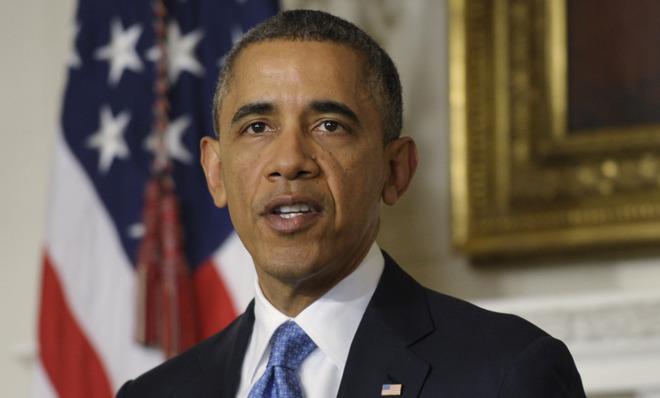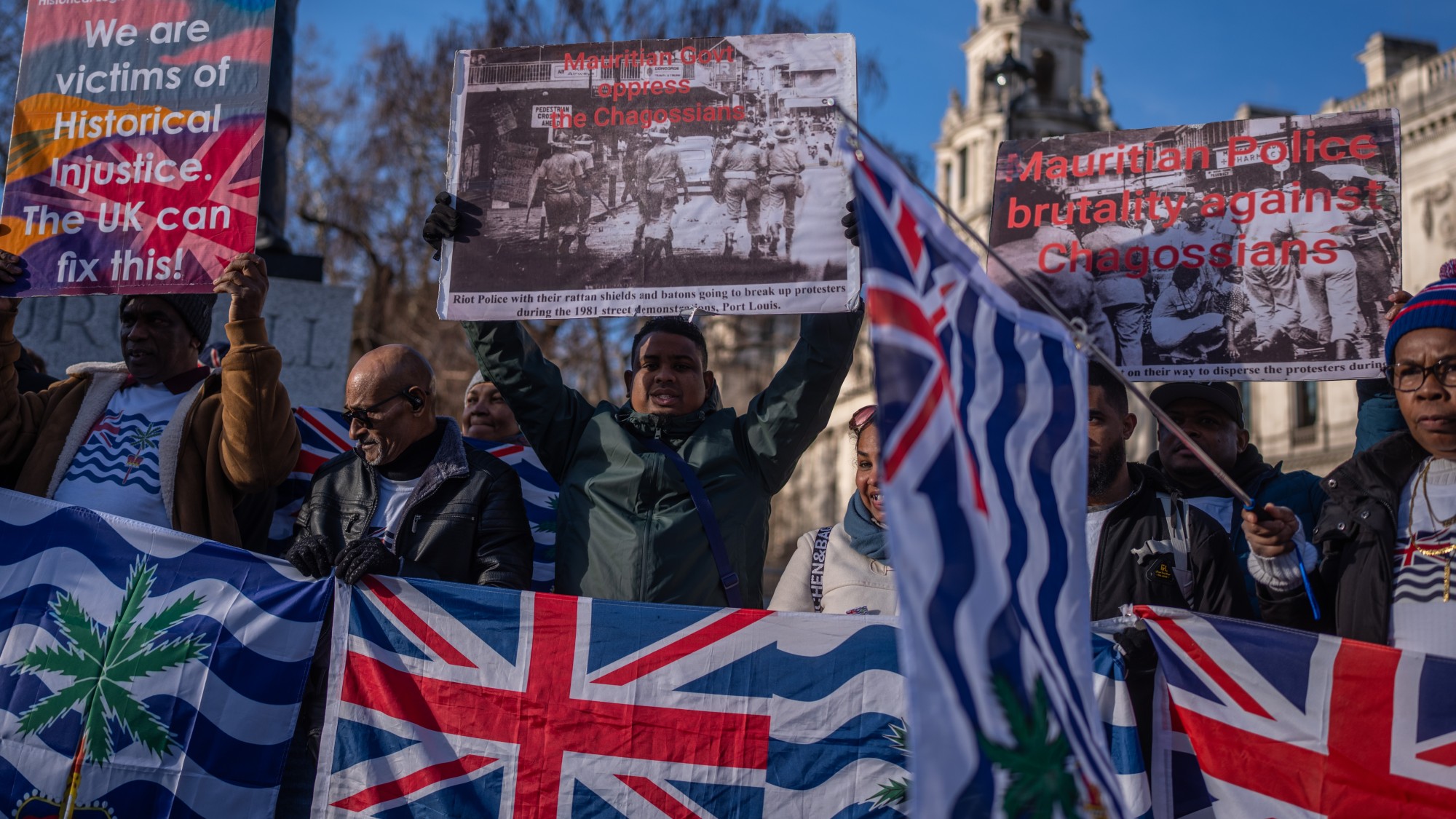What does a 'successful' Iran deal look like for Obama?
Obama has already achieved a landmark first step, but the next steps are the important ones


A free daily email with the biggest news stories of the day – and the best features from TheWeek.com
You are now subscribed
Your newsletter sign-up was successful
Since first winning election in 2008, President Obama has prioritized a successful resolution to the issue of Iran's nuclear program, an achievement that would go a long way in defining his foreign policy legacy.
But what exactly constitutes success? And what would a successful long-term pact with Iran look like?
This week, the P5+1 global powers reached a landmark interim deal to freeze much of Iran's nuclear enrichment in exchange for about $7 billion in sanctions relief. The mere fact that the two sides reached a deal that will hinder Iran's nuclear ambitions was in itself a "diplomatic success story," wrote the Washington Post's Eugene Robinson, because without it, "we would likely be drifting toward war."
The Week
Escape your echo chamber. Get the facts behind the news, plus analysis from multiple perspectives.

Sign up for The Week's Free Newsletters
From our morning news briefing to a weekly Good News Newsletter, get the best of The Week delivered directly to your inbox.
From our morning news briefing to a weekly Good News Newsletter, get the best of The Week delivered directly to your inbox.
"Even if negotiations for a permanent agreement ultimately fail," Robinson wrote, "this is a bargain price for six months of peace — six months, mind you, during which the Iranian nuclear program goes backward, not forward."
Still, as Obama himself noted, this is merely "a first step toward a comprehensive solution." And he reaffirmed that Iran "must accept strict limitations on its nuclear program that make it impossible to develop a nuclear weapon," as part of a long-term deal.
The administration's main goal is preventing Iran from having the capacity to build a nuclear bomb — period. But to achieve that end, there is a disagreement over whether the international community must force Iran to completely abandon its enrichment capabilities, as the likes of Israel and some members of Congress have demanded.
Whether Iran has a "right" to peaceful enrichment has been a major sticking point in past negotiations. Iran vigorously contends that it must be allowed to enrich its own material since other nations are allowed to do the same for peaceful purposes, an argument it revived following the interim deal.
A free daily email with the biggest news stories of the day – and the best features from TheWeek.com
The U.S. appears willing to "agree to disagree" on this issue, as the New York Times put it, essentially disputing Iran's claim in public but allowing it to nevertheless enrich low-grade uranium for civilian energy purposes. The interim deal specifically notes that a comprehensive solution would include "a mutually defined enrichment program with practical limits and transparency measures to ensure the peaceful nature of the program."
What parameters the U.S. would place on that enrichment program remain undefined. However, they would need to significantly lengthen the "breakout time" necessary for Iran to build a bomb, something that could be achieved by limiting the number and quality of Iran's centrifuges.
David Albright, head of the Institute for Science and International Security, has argued that Iran's breakout time must be upped to six months for a final deal to be "credible and justify significant sanctions relief." To achieve that goal, Iran would have to reduce its number of centrifuges to between 5,000 and 10,000, from 18,000.
And to ensure maximum oversight, Iran "should be limited to one enrichment site," Albright continued, while reducing its store of domestic uranium.
Under a final deal, Iran would also almost assuredly be asked to scrap a controversial heavy-water reactor that the international community fears could be used to process plutonium for nuclear weapons. Since 2006, the U.N. Security Council has demanded that Iran halt its heavy-water processing efforts. And the interim deal already calls for Iran to freeze all progress on the Arak reactor, which has yet to be completed.
Enforcing those goals presents another thorny problem.
There are concerns Iran could "exploit the limited sanctions relief to create loopholes to evade the remaining sanctions," Gary Samore, a former arms control coordinator for the Obama administration, told the New Yorker. If that were to happen, Iran would wind up in a stronger position than when it entered into the negotiations.
To be truly successful, the P5+1 must secure broad access to Iran's nuclear facilities for international inspectors. Furthermore, Iran has "to come clean on the full range of past and present nuclear work by all Iranian entities," according to Michael Singh, director of the Washington Institute for Near East Policy.
After all, it's not like Iran will suddenly forget all the progress it has made towards building a potential weapon. That institutional memory could come in handy if Iran ever decides to renege on a long-term deal, which means the world has to know what Iran knows.
Unlike a military campaign, "success" with regard to Iran will be highly subjective. Indeed, some actors, like Israel, deem any negotiation a form of failure. Diplomacy "is a protracted, messy business with often inconclusive results," wrote the New York Times' Mark Landler, adding that it's "harder for a president to rally the American public behind a multilateral negotiation than a missile strike."
But if the P5+1 can achieve the above goals — long shots in themselves — it would make a pretty strong argument that the group has succeeded in Iran.
Jon Terbush is an associate editor at TheWeek.com covering politics, sports, and other things he finds interesting. He has previously written for Talking Points Memo, Raw Story, and Business Insider.
-
 Can Keir Starmer save the Chagos deal?
Can Keir Starmer save the Chagos deal?Today's Big Question Opponents confident they can scupper controversial agreement as PM faces a race against time to get it over the line
-
 China and the rise of the humanoid robots
China and the rise of the humanoid robotsThe Explainer The country’s ‘bustling’ robotics industry is dominating the global market, though experts are split on how concerned we should be
-
 The cabbage comeback
The cabbage comebackThe Week Recommends Gone are the days of ‘WWII boiled cabbage recipes’. The humble vegetable is enjoying a resurgence
-
 The billionaires’ wealth tax: a catastrophe for California?
The billionaires’ wealth tax: a catastrophe for California?Talking Point Peter Thiel and Larry Page preparing to change state residency
-
 Bari Weiss’ ‘60 Minutes’ scandal is about more than one report
Bari Weiss’ ‘60 Minutes’ scandal is about more than one reportIN THE SPOTLIGHT By blocking an approved segment on a controversial prison holding US deportees in El Salvador, the editor-in-chief of CBS News has become the main story
-
 Has Zohran Mamdani shown the Democrats how to win again?
Has Zohran Mamdani shown the Democrats how to win again?Today’s Big Question New York City mayoral election touted as victory for left-wing populists but moderate centrist wins elsewhere present more complex path for Democratic Party
-
 Millions turn out for anti-Trump ‘No Kings’ rallies
Millions turn out for anti-Trump ‘No Kings’ ralliesSpeed Read An estimated 7 million people participated, 2 million more than at the first ‘No Kings’ protest in June
-
 Ghislaine Maxwell: angling for a Trump pardon
Ghislaine Maxwell: angling for a Trump pardonTalking Point Convicted sex trafficker's testimony could shed new light on president's links to Jeffrey Epstein
-
 The last words and final moments of 40 presidents
The last words and final moments of 40 presidentsThe Explainer Some are eloquent quotes worthy of the holders of the highest office in the nation, and others... aren't
-
 The JFK files: the truth at last?
The JFK files: the truth at last?In The Spotlight More than 64,000 previously classified documents relating the 1963 assassination of John F. Kennedy have been released by the Trump administration
-
 'Seriously, not literally': how should the world take Donald Trump?
'Seriously, not literally': how should the world take Donald Trump?Today's big question White House rhetoric and reality look likely to become increasingly blurred
